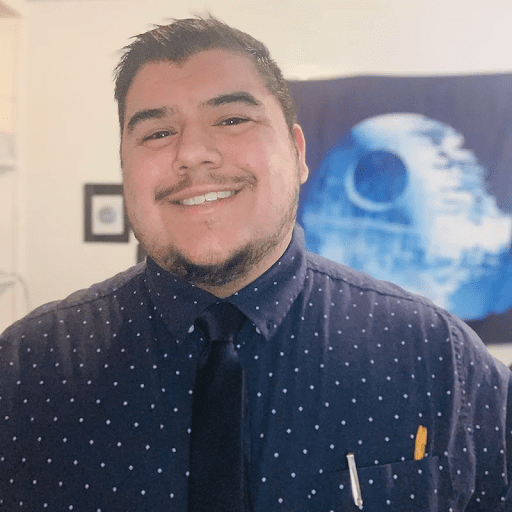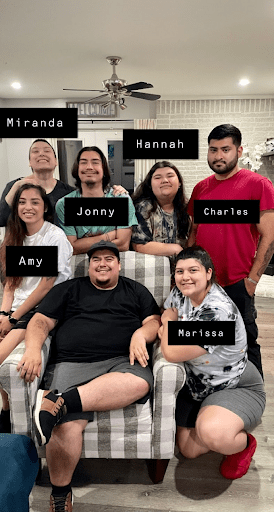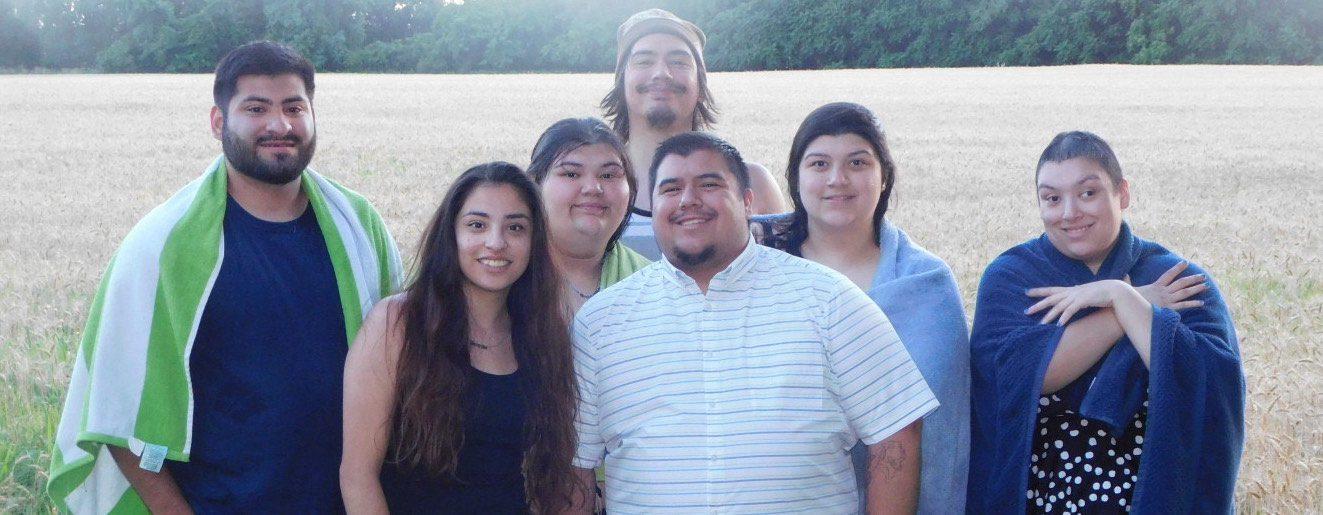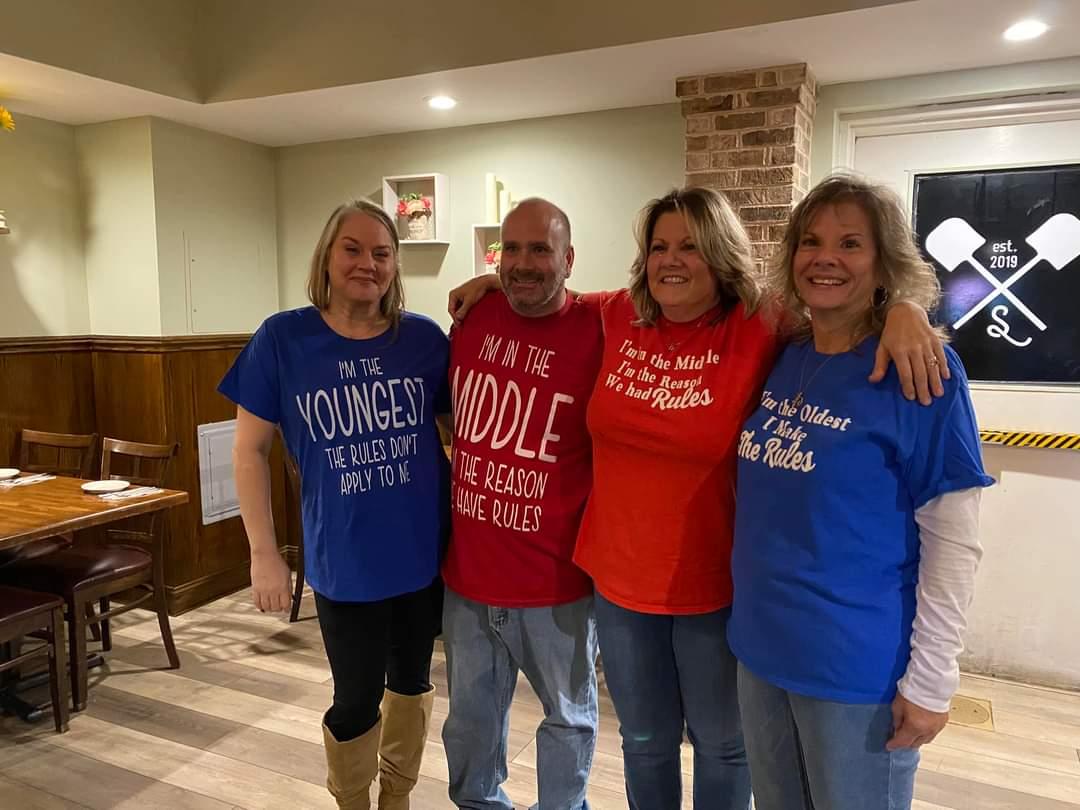The first thing you notice about Aaron Harris is his ever-present smile.
It punctuates his conversation even when he describes the parts of his life that were dark and joyless.
Born premature, at just 26 weeks, Aaron was a “micro-preemie” who struggled in his first year just to survive.
He came into this world addicted to the same opiates that his mother and father had been using. He weighed just one pound, 4 ounces, and spent his first months on oxygen. The doctors and nurses who cared for him didn’t think he would make it. If he survived, they feared he’d end up blind or deaf. That didn’t happen but it was a struggle. By the time he was one, his parents — who had two infants, twins born less than a year before Aaron — had abandoned him to foster care.
“I went through a lot,” he said with a smile and a nod of his head.

A Revelation
He’s now trying to unravel it all. So that he can understand where he came from, who he’s related to, and maybe a bit of what makes him who he is now. Several years ago, an aunt gave him 23andMe as a gift. It was a revelation for someone who was adopted and didn’t know much about his origins.
“I didn’t even know any medical history,” said Aaron, who is making a documentary about his experience called And Then There Were Seven.
He always assumed he was Latino because of his complexion but learned through 23andMe that he was Native American. Suddenly the Native American summer camps he happened to go to and the draw of the culture made more sense.
“It’s really cool to get a glimpse of my genetics,” he said. “So, I’m like 60 percent white guy, which is super funny because I’m brown. But I find out I’m 40 percent Native American.”
Authentic Self
Knowing that bit about himself helped a lot.
“It helped me pursue my authentic self,” he said.
Yet Aaron also wanted to know about any siblings out there. In part, he was worried about the children his birth parents kept, the twins. He’d learned about them from his adoptive mom and never stopped thinking about them.
Despite everything he went through physically, the only lingering physical effect was scarring in his airways from the oxygen tubes used to help him breathe in the ICU. He has pulmonary dysplasia and is prone to bronchitis and pneumonia. But instead of hardening him, the emotional scars of those early experiences and being abandoned by his birth parents created in him a deep well of empathy for others. He knew he was lucky. He wanted to know what happened to his siblings.
You’re Meant to be Aaron’s Mom
During his first three years, he was largely cared for by nurses or foster parents, but a woman, a play therapist, would visit during that time. Her name was Eva and she bonded with Aaron. She’d come when it wasn’t her shift, ensuring he had a stable caregiver. She was concerned he’d have trouble bonding if someone didn’t interact with him. She would give him bottles regularly, take him for walks in the stroller when he was stronger. At one point, Aaron wound up back in the hospital.
His foster mom looked at the play therapist and said, “I think you’re meant to be Aaron’s mom.”
Eva was still young and only recently married. She and her new husband, Shane, a rookie firefighter, adopted Aaron. A day later, she discovered she was pregnant with Aaron’s adoptive sister, Tatum.
Aaron grew up in Ventura. During his teen years and early 20s, Aaron began to come to terms with his gender identity, eventually transitioning to male. That experience gave him an innate connection with outsiders, the forgotten, and people looked over or cast away by others. He also never forgot that he had siblings out there, the twins. Both Aaron and his mom never stopped thinking about those two kids. They worried about them.
Searching
Aaron had tried a bit of sleuthing to find them. A few years ago he’d posted what information he had about his birth parents on a search site for adoptees — names from his adoption and social service records. He’d found some newspaper clippings related to criminal cases against his parents that included a description of his birth mom’s tattoo. That helped lead him to his paternal uncle. But once the uncle learned that Aaron was transgender, he ended contact with him.
Aaron kept searching.
Fast-forward to May 2021. He saw he had a new 23andMe DNA Relative match with a first cousin. They quickly connected. Within half an hour, he learned from his cousin that he didn’t have just two siblings, but six, and that they’d all been adopted by a couple in Maryland—Heidi and Doug—who had two children of their own. The couple had promised their birth mom that she would keep them together.
In all, his birth parents, who struggled with addiction and were in and out of jail, had seven children born in five years. There were two sets of twins, and six of the seven children were like Aaron, born addicted to opiates. Five were born prematurely.
Aaron’s cousin helped him connect with each of the siblings in a group chat. They’d known about Aaron, having learned about him through their uncle, and they knew he was transgender, but that wasn’t an issue for them. They just wanted to find him. 
Once she learned he’d found his siblings, Aaron’s mom insisted he see them as soon as possible. So he, his mom, Eva, and his sister Tatum flew to Maryland a few weeks later to meet his newfound siblings.
“Tatum said it was like being with a bunch of alternate versions of me,” Aaron said. “We’re just so much alike, and I can see myself in all of them.”
Permission
During his time in Maryland, Aaron also had the chance to meet his birth mom.
Despite everything, he said that at least she knew she couldn’t care for her children and helped ensure that they stayed together and were adopted by the same family. Heidi and Doug, the couple in Maryland who, with their two biological children, helped keep them a family.
But Aaron also said that he harbors some anger toward her and his birth father as well. He had so many questions he knew she wouldn’t be able to answer. And although she was pleasant to him, she also avoided being alone.
“It’s hard because I try to be patient, loving, and kind, but I had these feelings,” Aaron said. “It still hurts.”
But he also felt empathy for her and himself, permitting himself to feel the way he felt. But more striking was what he felt toward his siblings. This powerful connection wasn’t just biological. It was that they, too, had experienced the same pain. He thought about how all of them had survived despite an early life marred by drug abuse, poverty, and neglect. They’d each been given a second chance by families who adopted them loved them, and raised them to be who they are.
And it’s that idea that drives him now.
“I want to share our story of struggle, adoption, perseverance, hope, family, and love with the world.”




